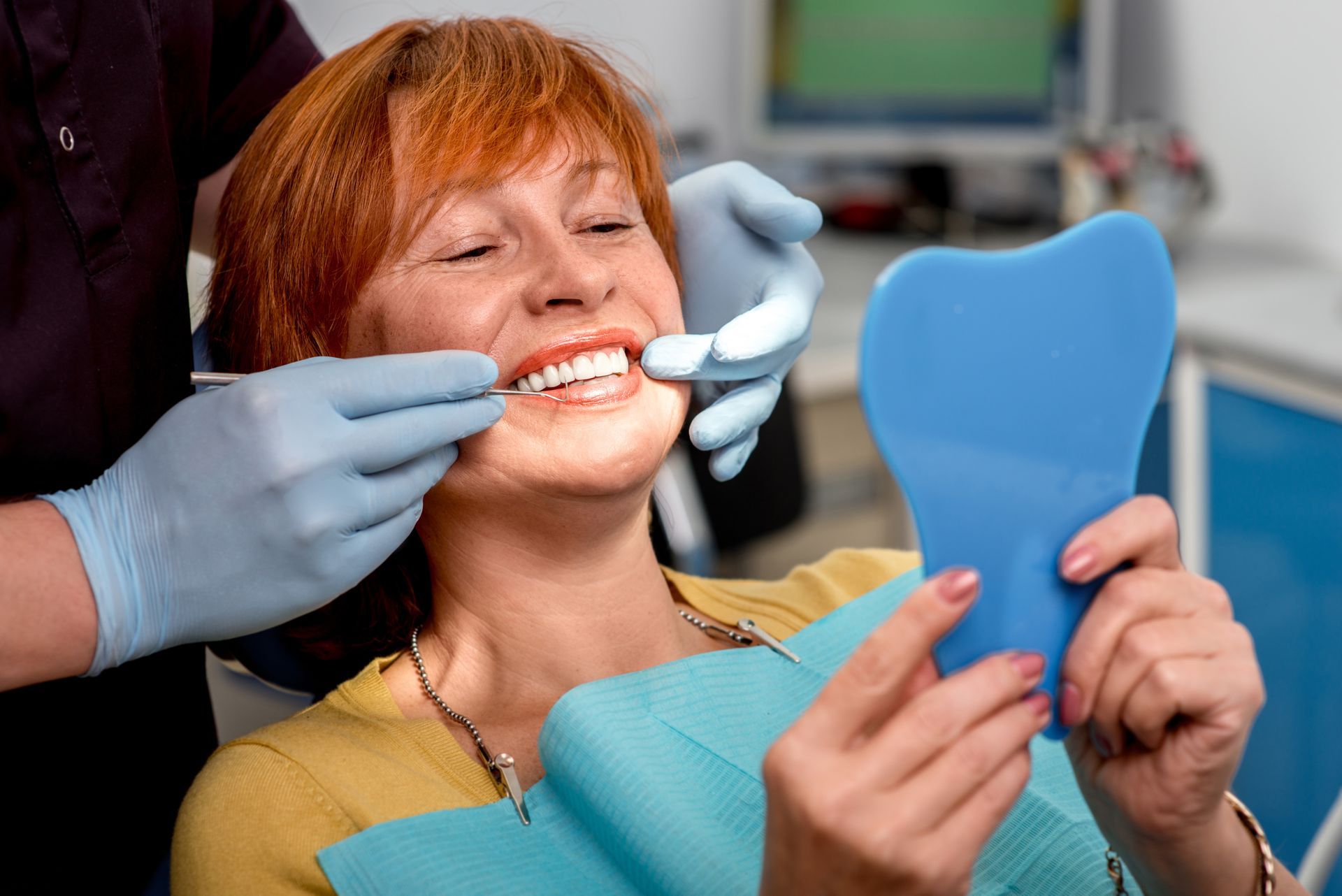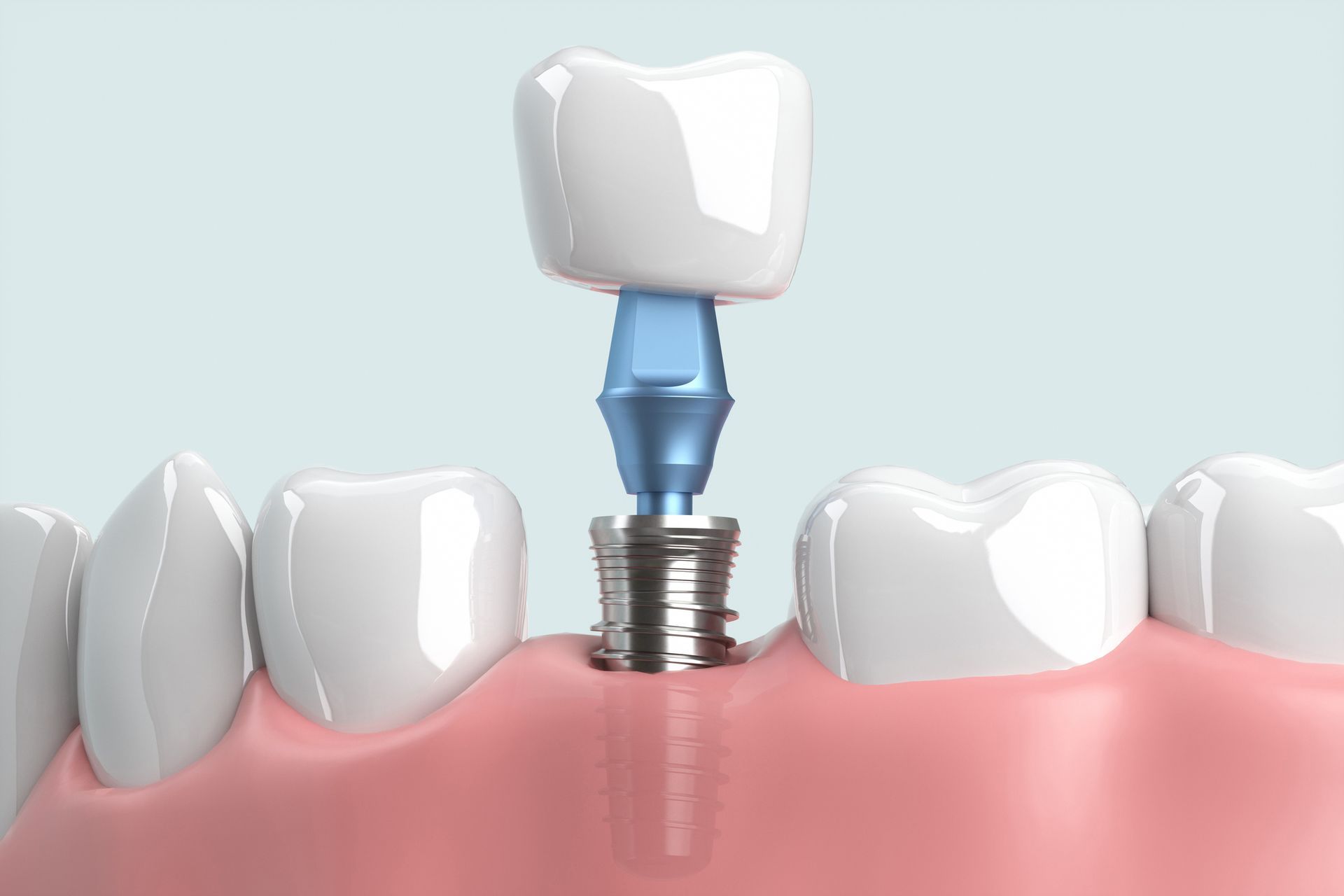DENTAL IMPLANTS: IMPORTANT CONSIDERATIONS
- By Admin
- •
- 28 Nov, 2019

One of the most effective ways for someone with missing teeth to recover their smile is to have dental implant surgery. Here is a look at some of the key considerations regarding this innovative dental treatment.
How Does the Process Work?
The dental implant process typically involves several procedures.
Implants
During implant surgery, the dentist will apply a dental fixture that replaces the root of your missing tooth or teeth. The implant is made of titanium and typically affixed to your jawbone permanently. The success rate of implant surgery is very high, about 98 percent according to recent research.
You will need a local anesthetic for dental implants in most cases. You also typically require several separate procedures to complete the installation of the implants.
The dentist will allow for a certain amount of time between procedures to give your mouth to heal. The healing time depends on the specific circumstances of your situation and the entire process could take several months to complete.
Abutment and Crown
Once the implant is installed and your mouth has healed, the dentist will apply a new fixture, called an abutment, to the top of the implant. An abutment provides support for the final procedure in the dental implant process, which is the installation of the crown, or artificial tooth.
The dentist will allow for a certain amount of time between procedures to give your mouth to heal. The healing time depends on the specific circumstances of your situation and the entire process could take several months to complete.
Addressing Potential Problems
Your dentist will help you determine if you are a good candidate for implant surgery. It's important that you have healthy gums, so, if you have any gum disease, address this problem before any implant procedure.
Another issue involves your jawbone. If your jawbone is not thick or hard enough to support implants, you will need a bone graft to strengthen the jawbone prior to having the implants installed. If you require a bone graft, you may need a healing time of up to six months before you are ready for the implant surgery.
What are the Benefits of Implants?
Dental implants have a number of important functional and cosmetic benefits for patients.
Functional
One advantage of dental implants is that they function almost exactly like natural teeth. You don’t need to take implants out of your mouth to eat and then put back in after, unlike dentures. Implants also help people with missing teeth avoid problems with their speech and can even make it easier for them to chew food.
Cosmetic
Some patients prefer to have dental implants installed for cosmetic reasons. Implants are virtually impossible to tell apart from natural teeth, which may not always be the case with dentures.
What Happens After Surgery?
After each separate procedure, you might need some pain medication to deal with any discomfort in your mouth. In some instances, your dentist might prescribe antibiotics to resolve any infection and swelling that occurs at the surgical site. You may also need to eat soft foods after each procedure to help your mouth heal.
A key point to remember is that dental implants need the same care that you would give to your natural teeth. Brush your implants regularly, just as you do with your remaining natural teeth. Also, it's a good idea to avoid foods such as hard candy, because hard food items can damage your crowns.
Grinding your teeth can also harm your crowns, so, if you grind your teeth, get help for this issue as soon as possible.
Dental implants are a good way to replace missing teeth for many people. Only you and your dentist can determine if they are right for you. An experienced dentist, such as Bradley Piotrowski, DDS, MSD, LLC can help you decide if implants are the best choice in your situation. Contact us to learn more.
AREAS WE SERVE
- Alva
- Ave Maria, Florida
- Bonita Springs, Florida
- Cape Coral, Florida
- Estero, Florida
- Fort Myers Beach, Florida
- Goodland, Florida
- Lehigh Acres
- Lely
- Marco Island, Florida
- Naples, Florida
- Saint James City, Florida
- Sanibel Island, Florida
- Vanderbilt Beach, Florida
AREAS WE SERVE
- Alva
- Fort Myers Beach, Florida
- Naples, Florida
- Ave Maria, Florida
- Goodland, Florida
- Saint James City, Florida
- Bonita Springs, Florida
- Lehigh Acres
- Sanibel Island, Florida
- Cape Coral, Florida
- Lely
- Vanderbilt Beach, Florida
- Estero, Florida
- Marco Island, Florida
This web site is not designed to, and does not, provide medical advice. all content ("content"), including text, graphics, images and information available on or through this web site are for general informational purposes only.
The content is not intended to be a substitute for professional medical advice, diagnosis or treatment. Never disregard professional medical advice, or delay in seeking it, because of something you have read on this web site. Never rely on information on this web site in place of seeking professional medical advice.
Bradley Piotrowski, DDS, MSD, LLC is not responsible or liable for any advice, course of treatment, diagnosis or any other information, services or products that you obtain through this site. You are encouraged to confer with your doctor with regard to information contained on or through this web site. After reading articles or other content from this web site, you are encouraged to review the information carefully with your professional healthcare provider.
CONTACT INFORMATION
Address: 1044 Castello Drive, Suite 202, Naples, FL 34103
Phone:
(239) 263-6003
Email: drbradpiotrowski@gmail.com
Business Hours:
- Mon - Thu
- -
- Friday
- Appointment Only
- Sat - Sun
- Closed













